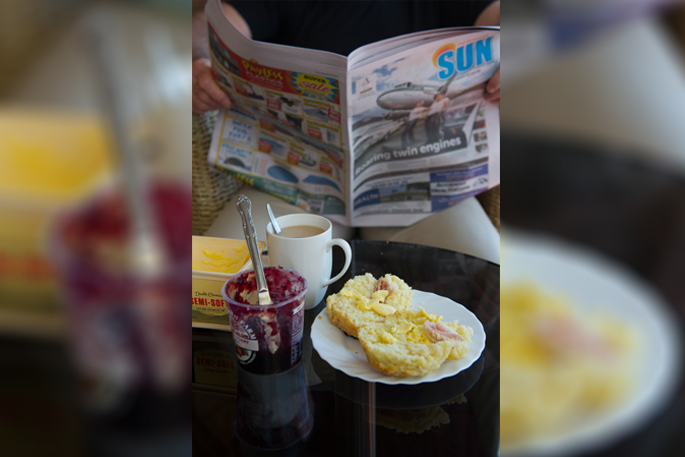There's scone the noun – as in someone's head. There's scone the verb – to scone someone, to strike them, scone them on the scone.
A person can be a scone, implying they're awkward or forever alone, a loser. There's also scones as in let's go. 'It's the cops, scones!”
There's a savoury scone and an un-savoury scone – this scone being a rude Barbie-style girl, interested only in make-up and boys, lacking intelligence and seen in batches or groups.
And, of course, there's doing your scone – as in going off. In this case doing your scone about the price of a scone, the small baked buttery cake dating back five centuries. Dating but no dates.
This kerfuffle started when a Kapiti Coast cafe hiked the price of a cheese scone by more than 22 per cent to $5.50 - an expensive scone sweetened only by the complimentary jam.
Should it even be an issue? Well, they went nuts online. 'To charge these excessive prices is beyond me. I dodge them.” 'Nine times out of ten they're dry and never served with enough butter.” 'Free market, no-one makes you buy them.” Etc, etc, ad nauseum, about the price of a scones.
'Is $5.50 ridiculously expensive? Not at all,” says Tauranga celebrity chef and tutor, Peter Blakeway. It should be more about the senses than the pocket for him.
'What I think is odd is the jam. I wouldn't put jam on a cheese scone. I mean, what's the cheese for? If it was a really good $5.50 cheese scone why would you adulterate it?”
But this is not about scone etiquette, it's about price. We couldn't find a $5.50 scone in Tauranga, but they're getting up there. From $4.00 to $4.50 for a cheese or date scone and $4.80 and $5.00 for a savoury scone.
'It all depends on the scone,” says Peter. 'If the scone is truly exceptional, then $5.50 is not expensive – especially if it's made with great, fresh ingredients, made with love, made with passion, made to order and made interesting.
'But if it's just a vague non-descript mix of powdery ingredients thrown together with not a care in the world, then $5.50's too much. But made with love – fine.”
Ask the consumer and there's a pre-occupation with size rather than cost. 'How big was the scone?' and 'as long as it's a decent size”. New Zealand's fixation with the size of food portions rankles with the celebrity chef as well.
'I'm not sure where we learned that from,” says Peter. 'I have a horrible feeling it might be the United States. Size isn't everything – quality is much more important. Does a $5.50 scone have to be the size of a tea plate to justify the price? It probably does, which is a shame.”
He says the focus should be on the cheese. What's the cheese in the scone?
'If it's a hand-made artisan cheese, from one of the wonderful cheese makers in the Bay like Mt Eliza out in Katikati, and if that scone was using their cheese and promoting both the artisan product and the love and passion of the baker, then yeah, I would be in there with my $5.50.”
But, says the chef, if it was using a bit of mainland tasty then the money might stay in his wallet.
Derived from the Scottish Gaelic word "sgonn" meaning a "block" or "sgonn arain" meaning a block of bread, the correct pronunciation we understand is "skon". Scones date back to the early 16th century in Scotland. They were a lot cheaper then.

